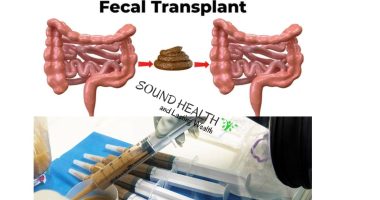
Eating disorders constitutes a group of conditions wherein individuals have abnormal eating habits, which impairs their health and psychosocial functioning. It is important to identify and diagnose individuals with this disorder in view of its effect on mental and physical well-being. It is an illness marked by severe disturbances to one’s eating behaviors. This condition is biologically influenced and can impact a person’s psychological condition severely. People don’t experience eating disorders due to their lifestyle choices. It is a serious condition due to which some people either eat a lot like binge eating or almost eat nothing. It can affect people of all ages. However, doctors have spotted this condition majorly in teenagers and young adults.
But this does not mean that this condition cannot appear later on in life. Eating disorders do not help maintain a balanced diet in a person’s life. Due to this, a person might experience severe weight loss or weight gain and not get the important nutrients. Apart from all the physical impacts, all of these take a serious toll on the person’s mental health as well.
Impact On Mental Health
Many people with eating disorder have other mental health conditions like depression, anxiety, or substance abuse. Mental health conditions can appear before, during, or after an eating disorder. Sometimes, these are called ‘co-occurring’ when they happen at the same time as the eating disorder.
Doctors are slightly unclear about the link between eating disorders and mental health. There is a possibility that it is interlinked. Eating disorders impacts mental health but mental health can also be the cause of eating disorders. Other symptoms that occur due to eating disorders are:
- Depression
- Anxiety and anxiety disorder
- Mood disorder
- Personality disorders
- Obsessive compulsive disorder (OCD)
- Attention deficit hyperactivity disorder (ADHD)
- Post Traumatic Stress Disorder (PTSD)
- Substance abuse disorders
Types Of Eating Disorders
Common eating disorders include anorexia nervosa, bulimia nervosa, binge-eating disorder, and avoidant restrictive food intake disorder. Each of these disorders is associated with different but sometimes overlapping symptoms. Sometimes, the patient eats too much and then vomits. Alternatively, a person may severely restrict food intake. People exhibiting any combination of these symptoms may have an eating disorder and should be evaluated by a health care provider.
Physical Impacts of Eating Disorders
Eating disorders lead to a lot of health problems as well. These problems arise as a direct result of extreme food restriction or extreme food consumption. It can cause general physical problems such as feeling cold, poor concentration, and being slow or sluggish. Some parts of your body are especially at risk if your eating disorder is not treated. Here are few health problems you might have if you have an eating disorder.
- Heart problems
- Hormonal problems
- Digestion problems
- Impact on the brain such as problem concentration and sleeping, experiencing seizures and dizziness.
- Impact on hair, skin, immune system
- Low red blood cells
- Infertility
Take Care Before It Becomes Fatal
Eating disorder can be very dangerous and fatal for some people exhibiting extreme symptoms. The death rate of people due to this disorder is very high according to researchers. Anorexia nervosa is the most fatal among the other eating disorders. When a person is not eating at all, he or she can starve to death.
Also Read: 5 Good Reasons to Get Your Young Kid Vaccinated Against COVID-19










